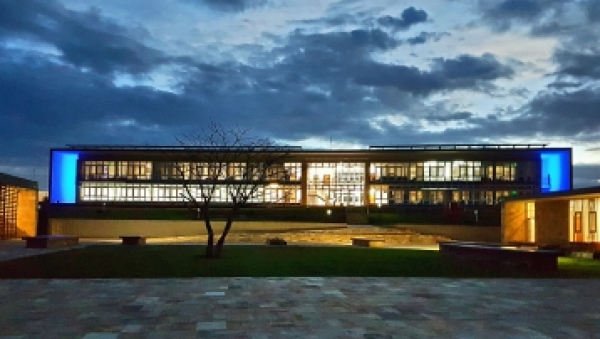The retrial of former Rwandan Planning Minister Augustin Ngirabatware is to take place on September 24 to 28 before the Mechanism for International Criminal Tribunals (MICT), which is the residual mechanism of the UN’s Rwanda tribunal.
According to an order posted on the Mechanism website, the calendar for testimonies of any defence and prosecution witnesses will be announced at a later date.
Ngirabatware, who holds a doctorate in economics from the University of Fribourg (Switzerland), was sentenced by the International Criminal Tribunal for Rwanda (ICTR) to 30 years in jail for genocide and crimes against humanity. The judges found that in April 1994 he incited, aided and encouraged militia in his native Nyamyumba commune of Gisenyi prefecture (north) to kill their Tutsi neighbours. In a submission to the MICT on July 8, 2016, the former minister said he had new facts that would clear him of the crimes for which he was convicted, and requested a retrial. On June 19, 2017, the Mechanism granted his request, making him the first ICTR convict to get a retrial.
Meanwhile Thameur Mekki, editor of Tunisian website Nawaat, took a critical look at his country’s main media and how, according to him, they have adopted a hostile attitude to transitional justice institutionalized in 2014 through the creation of the Truth and Dignity Commission. Mekki says these media, motivated by a convergence of political and economic interests, are serving to restore the image of fallen dictator Ben Ali. “Favouring current events over remembrance, their coverage promotes transitional justice bashing, supports a proposed presidential law against accountability, and has turned its back on the importance of truth seeking, the need for reparations and reform,” he writes.
Difficult peace process in Mali
In Mali, one of the main challenges facing newly re-elected president Ibrahim Boubacar Keïta is to implement the peace and reconciliation accord signed three years ago by the government and a mainly Touareg rebel coalition. Implementation of this agreement, which aimed to restore stability in the north of the country, has experienced a series of delays due mainly to a climate of distrust between the signatories.
President Keïta’s camp may claim that separatist plans have been abandoned in the north, but, according to researcher Baba Dakono of the security studies institute, opponents point out that the interim authorities in the north are having trouble being accepted by the local population. JusticeInfo correspondent Sidi Ahmed cites Dakono as saying that for many Malians, the peace accord commits only the government and the armed groups that signed it.
Lost generation
Also this week, UNICEF warned of a “lost generation” of Rohingya refugee children in Bangladesh. “If we don’t make the investment in education now, we face the very real danger of seeing a lost generation of Rohingya children,” UNICEF Bangladesh Representative Edouard Beigbeder said in a statement. “Children who lack the skills they need to deal with their current situation, and who will be incapable of contributing to their society whenever they are able to return to Myanmar.” According to UNICEF, there are more than half a million children from Myanmar in the refugee camps of southern Bangladesh.







